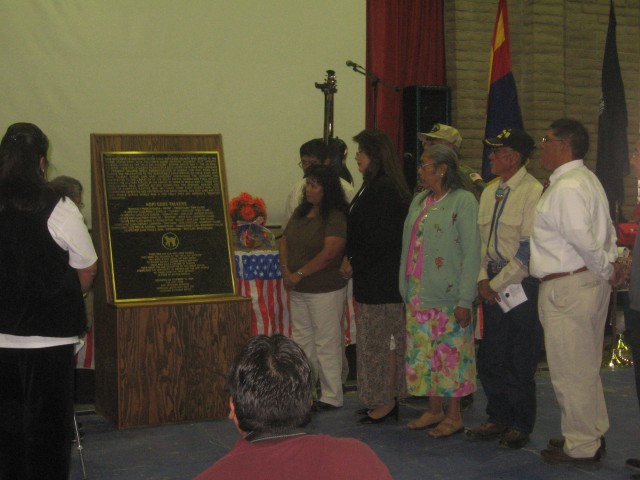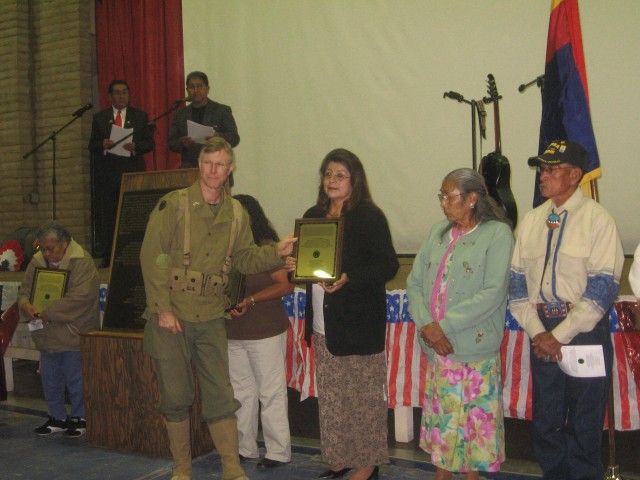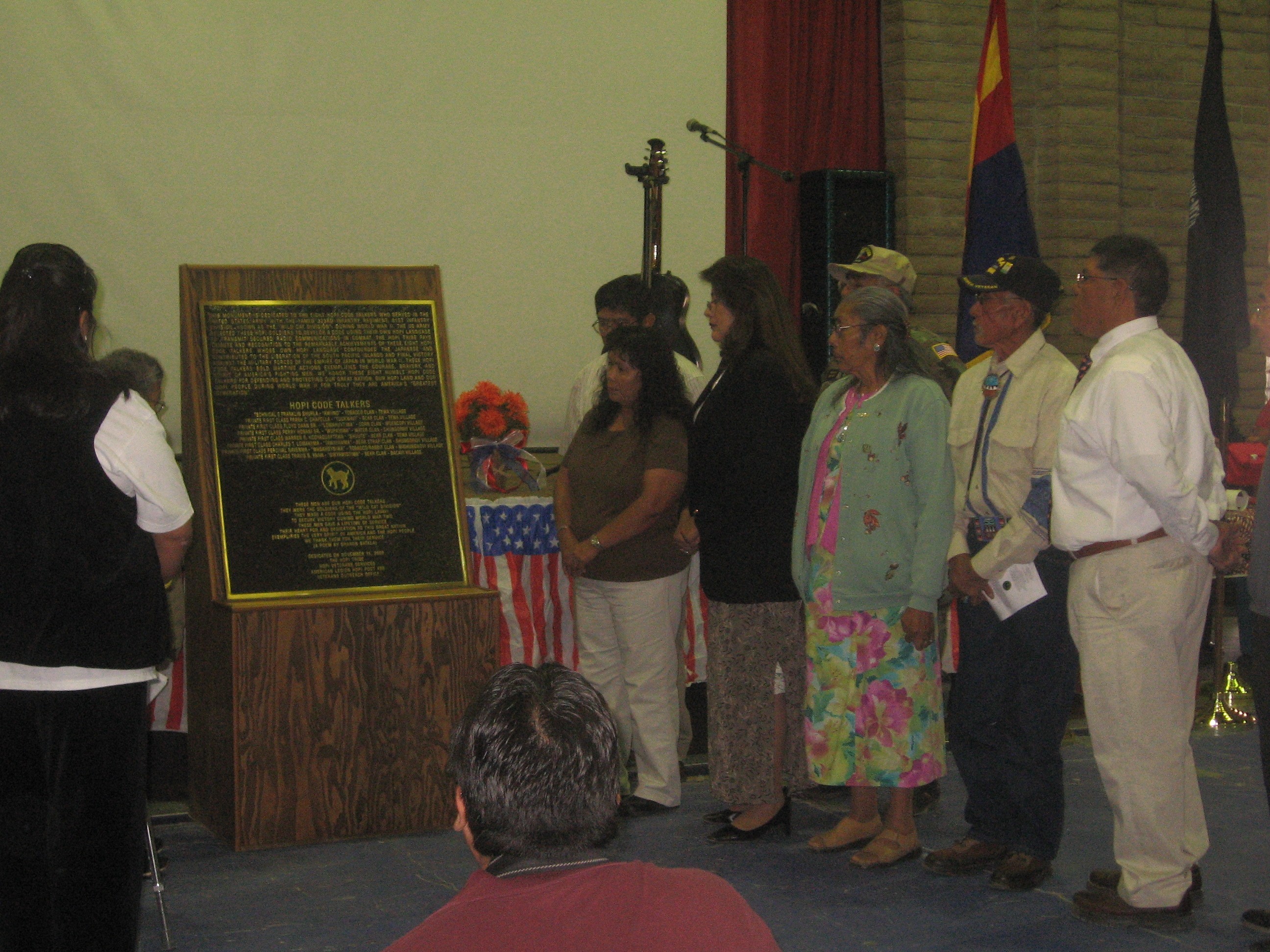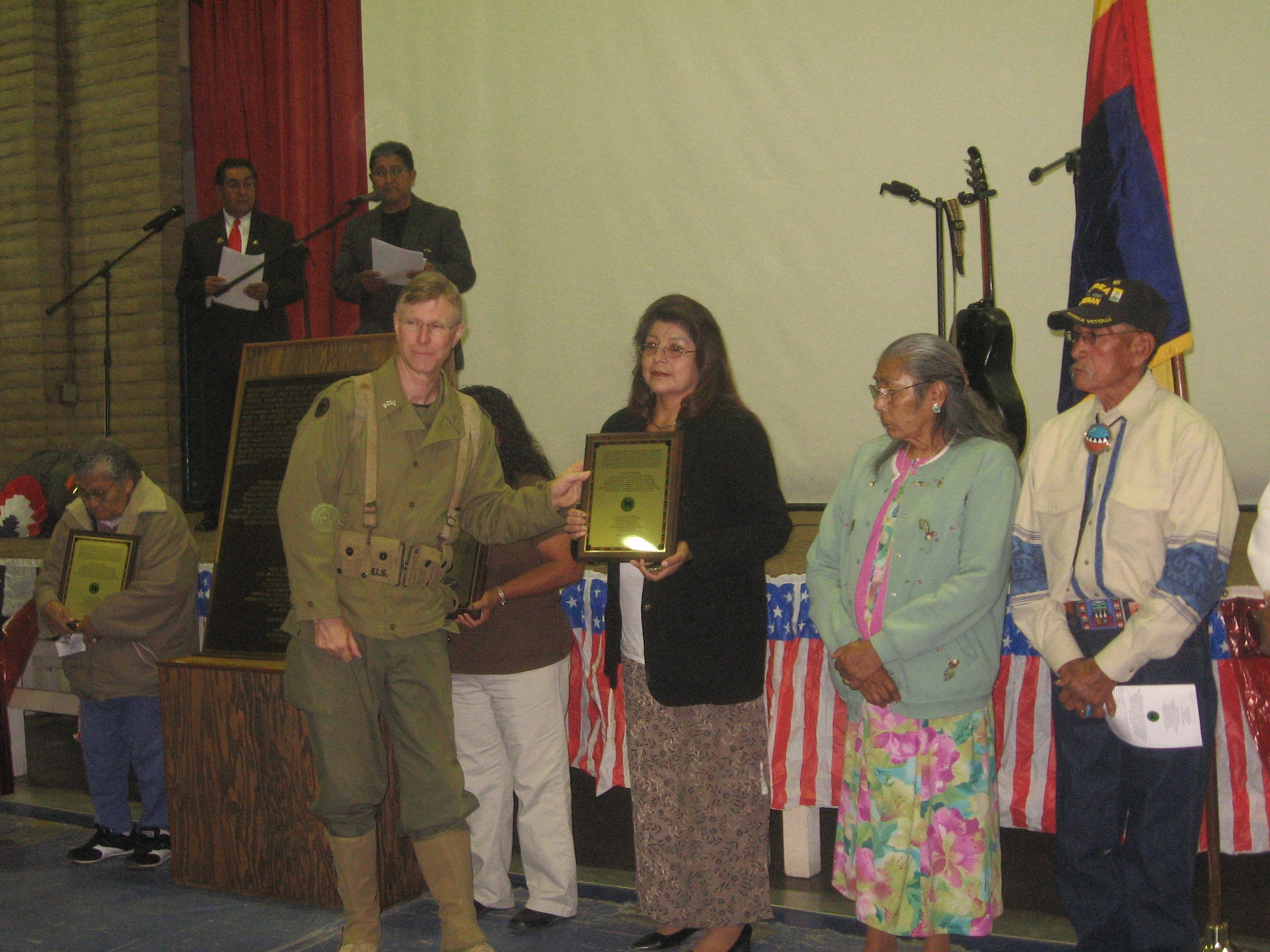KYKOTSMOVI, Ariz. - As Veteran's Day celebrations honored American men and women fighting the war on terror and past conflicts, a small dedication ceremony remembered eight nearly forgotten heroes of World War II.
A bronze plaque commemorating Hopi Indian code talkers was dedicated during the Nov. 11 celebration at the Hopi Veterans Memorial Center here.
The Hopi Indian code talkers served with, then, Camp Jackson's 81st "Wildcats" Infantry Division in World War II, said Dr. John Boyd, the 81st Regional Support Command's historian, who was invited by the tribe to be a guest speaker.
The plaque paid tribute to the Hopi Tribe and recognized the remarkable achievements of the eight Hopi code talkers whose native language confounded the Japanese and contributed to the liberation of the South Pacific islands, he said.
As the Hopi High School color guard presented the state of Arizona, Hopi nation and United States colors during the ceremony, visitors stood at attention as Boyd, dressed in a replica World War II "Wildcat" uniform, presented miniature memorial plaques to family representatives of the eight code talkers.
Today, only one code talker, Travis Yaiva, is still alive but he was unable to attend the event, Boyd said.
"This was a very moving moment, and recognition of service long overdue." Boyd said as two family members stood in tears after receiving their plaques.
In fact, more than 17 tribes made immeasurable Code Talker contributions to the war effort, said Phillip R. Quochytewa III, the nephew of Yaiva.
Boyd said the recognition of the Hopi Indian tribe's contribution to the code talker effort during the second world war has been largely ignored.
"The Hopis are peaceful people," Boyd said of the quiet tribe. When referring to Hopis, Boyd was told using the word "warrior" was not the best description.
"The Hopis are traditionally more 'defenders,'" he said. "In fact, when a Hopi serves in the military as a warrior their name is possibly tarnished -- so they are cleansed -- reintroduced to the tribe when they return."
Upon their return from war, all eight Hopi code talkers were given a new Indian name as part of their identity.
After the ceremony, Boyd and other guests were treated to a traditional Hopi lunch and a performance of Hopi Indian songs in native Hopi and in English.
"There is a unique connection here, a one-of-a-kind friendship between the Hopi Indians and the Army Reserve's 81st RSC," Boyd said. "The connection of Hopi code talkers to 81st Wildcats links to the fact that the majority of Hopi code talkers served with the 81st Infantry Division in World War II. "
He added there are probably few, if any other, Army Reserve commands that can boast of such a special relationship.
"Military history binds our Army and nation together in ways unique and unexpected," he said. "Who knew that the 81st had a connection with the Hopi Indians, for example' Preserving and telling the story of the sacrifices & achievements of our brave soldiers then and now is a sacred trust."
From the desert and mountains of Arizona to the low rolling hills of the Fort Jackson, the Soldiers and civilians assigned to the 81st RSC can look back at history and know that the "Wildcat" patch continues to march in newly written chapters of the Army Reserve.




Social Sharing